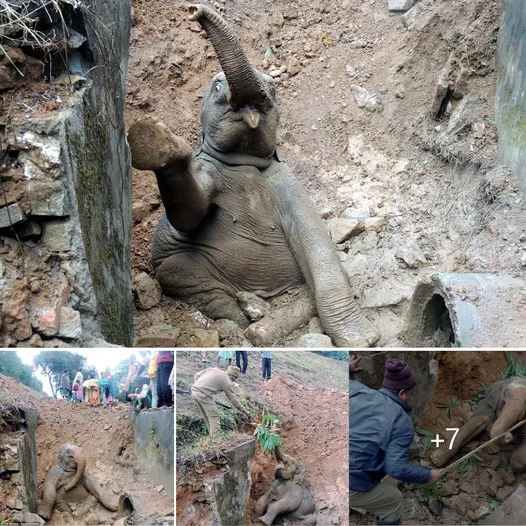Elephant trapped in Indian jungle after crossing railway tracks
An elephant in India has been stuck in a dense forest after straying onto a railway track and getting its leg caught in a trap.
The incident occurred in the state of Assam, where authorities have been working to free the animal for several days.

The elephant was part of a herd that had crossed the tracks in search of food. However, the animal became trapped in a snare trap, which is commonly used by local farmers to protect their crops.
Rescue teams have been deployed to the area to help free the elephant, but their efforts have been hampered by the difficult terrain and the animal’s large size.
Local authorities have called for better safety measures to be put in place to prevent similar incidents from occurring in the future.

The incident highlights the ongoing conflict between humans and wildlife in India, where rapid development and deforestation are putting increasing pressure on the country’s natural resources.
Efforts to protect and conserve India’s wildlife have become increasingly important in recent years, as many species are now threatened with extinction.
The trapped elephant in the Indian jungle has garnered attention and concern from animal lovers and conservationists around the world. The incident brings to light the ongoing conflict between humans and wildlife in India, as well as the need for better safety measures to be put in place to prevent similar incidents from occurring in the future.

The elephant was likely searching for food when it strayed onto the railway tracks and got its leg caught in a snare trap. These traps are commonly used by local farmers to protect their crops from wild animals. While the traps may be effective in deterring crop damage, they pose a serious risk to wildlife, as evidenced by the trapped elephant.
Rescue teams have been working tirelessly to free the trapped elephant, but their efforts have been hampered by the difficult terrain and the animal’s large size. The rescue operation highlights the importance of having trained professionals and resources available to respond to such incidents.
This incident is not an isolated case. Rapid development and deforestation in India have put increasing pressure on the country’s natural resources and its wildlife. Many species, including elephants, are now threatened with extinction. Efforts to protect and conserve India’s wildlife have become increasingly important in recent years.
In conclusion, the elephant trapped in the Indian jungle is a reminder of the ongoing conflict between humans and wildlife in India. It is crucial that measures are taken to prevent similar incidents from occurring in the future, and that efforts to protect and conserve India’s wildlife are prioritized.



